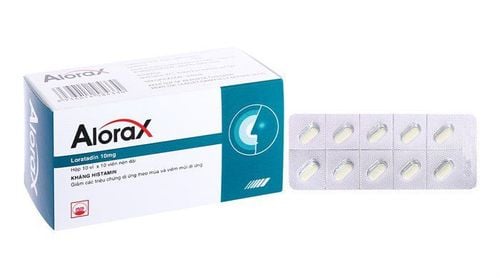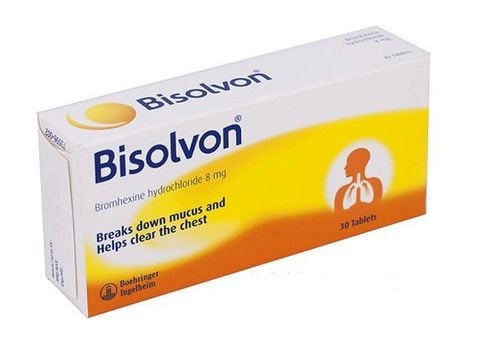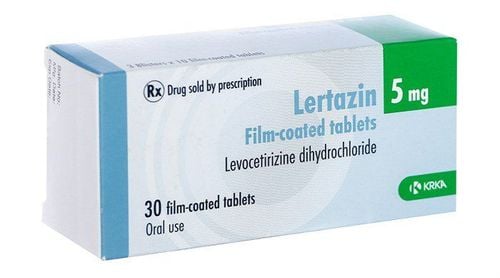This is an automatically translated article.
Cidetuss has the effect of reducing cough, expectorant, reducing irritation of the nose and throat. The following article gives you clear information about the drug, side effects when using Cidetuss.
1. What is Cidetuss?
Cidetuss is a combination of a cough suppressant, expectorant and decongestant. It is used to treat coughs, reduce expectoration, and irritated and congested airways.
Ingredients of the drug: Guaifenesin, dextromethorphan and cetirizine Dosage form: soft capsule
2. Uses of the drug Cidetuss
Guaifenesin is an expectorant that reduces the stickiness of mucus (sputum) and helps clear it from the airways. Dextromethorphan is a cough suppressant that works by reducing the activity of the cough center in the brain. Cetirizine is an antihistamine that relieves allergy symptoms such as runny nose, watery eyes, and sneezing.
3. Dosage and how to use the drug
3.1. Dosage of the drug Children from 6 years and older: take 1 tablet x 2 times/day Adults: take 1 tablet x 2 times/day Children from 4 to under 6 years old: take 1 tablet/day. 3.2. How to take this medicine Take this medication by mouth with a full glass of water. Follow the instructions of your doctor or pharmacist. Take the medicine regularly every day, avoid skipping doses.
Although this medicine may be prescribed to children 4 years of age and younger for selected conditions, precautions still apply.
Patients over 60 years of age may have a stronger reaction and require a smaller dose.
4. What may interact with these drugs?
This medicine may also interact with the following:
Barbiturates such as phenobarbital Certain heart medicines such as metoprolol, digoxin and methyldopa Diuretics Doxazosin Drugs for depression, anxiety or psychosis Medicines for sleep Medicines for blood pressure Muscle relaxants Other medicines for colds, coughs, or allergies Some medicines used to sleep during surgery
5. Side effects of drugs
When patients use Cidetuss, they may experience unwanted side effects. Here are some of the side effects that have been studied in people using this medicine:
Guaifenesin: rare symptoms such as dizziness, headache, diarrhea, nausea, feeling sick to the stomach, rash skin, urticaria. Cetirizine: common symptom of somnolence depends on the dose of the drug. You can also see fatigue, dry mouth, dizziness, headache, nausea. Less common symptoms include anorexia or increased appetite, urinary retention, flushing, and increased salivation. Dextromethorphan: common symptoms such as fatigue, dizziness, tachycardia, flushing. This is not a complete list of side effects and others may occur. If you experience any unwanted effects, stop taking the medicine and notify your doctor immediately or go to the nearest medical facility for timely treatment.
6. Some notes when using Cidetuss
When the patient coughs a lot and has a lot of sputum, a long-lasting cough in a smoker, asthma, pneumothorax, chronic bronchitis, caution should be taken when using the drug. Patients with liver disease, renal failure, liver failure or patients on hemodialysis need to adjust the dose accordingly. Patients with porphyria should avoid using this drug. Patients at risk or suffering from respiratory depression should use caution. Do not use the drug with alcohol and other CNS depressants. Taking many medications can cause kidney stones. Do not use the drug for more than 7 days, consult a doctor.
Please dial HOTLINE for more information or register for an appointment HERE. Download MyVinmec app to make appointments faster and to manage your bookings easily.













